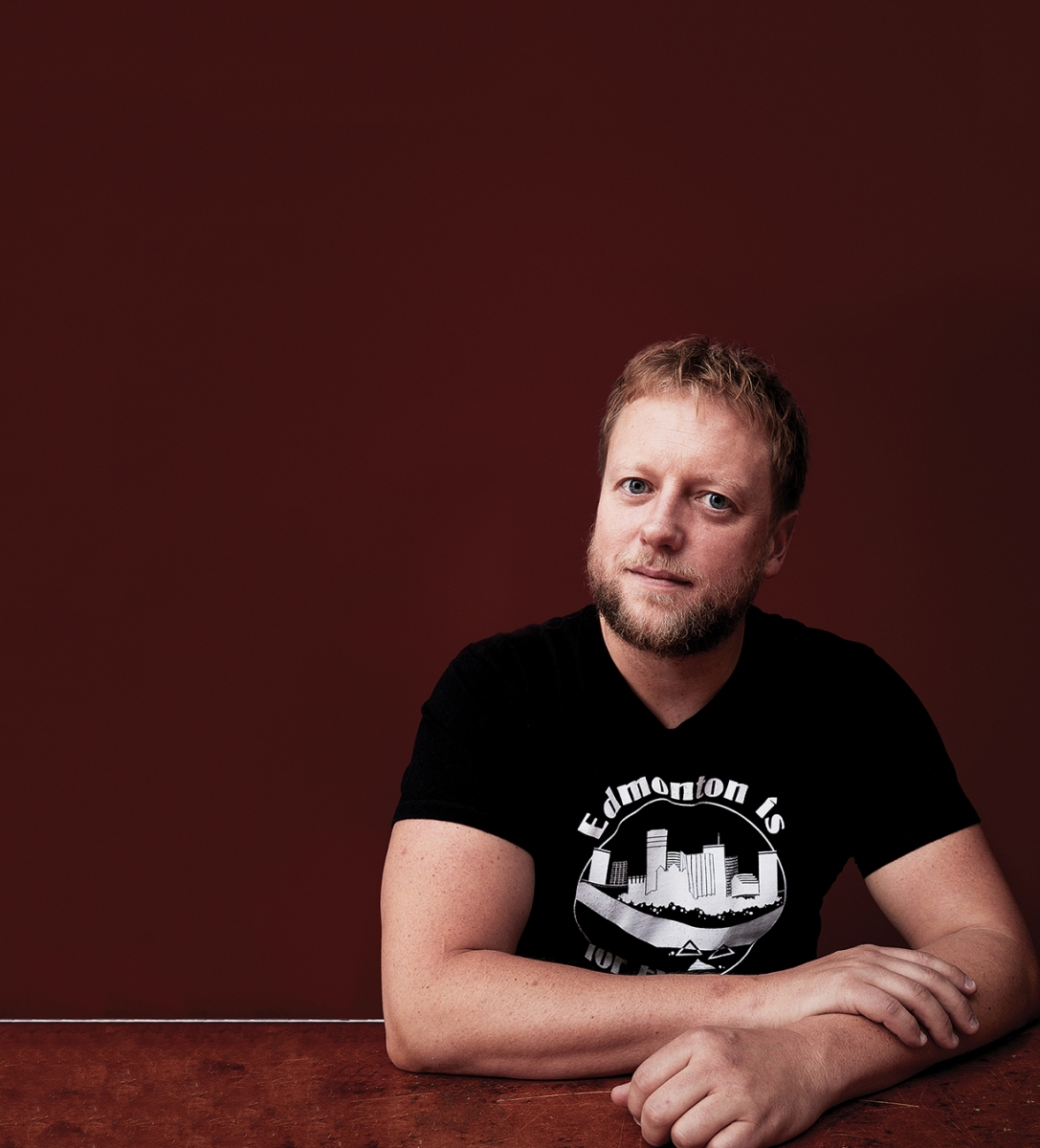Age: 35
Job Title: PhD student, University of Alberta; Program Lead, Inner City Recreation and Wellness Program, Bissell Centre and Boyle Street Community Services
Why He’s Top 40: He’s providing opportunities for people to effect change in the community and make their voices heard.
Rylan Kafara initially planned to become a lawyer; but, in his first undergraduate history course, a professor’s suggestion that he use his love of music as a lens to study the world changed his course. For that first paper, he examined the connection between reggae music and the oppression of citizens in Jamaica, and, for his Master’s thesis, he explored the cultural and social history of Seattle and the underground scene in the 1980s, as well as the Central district in the pre-civil rights era.
“Music can be a point of learning and of challenging issues in society,” says Kafara. “Through my research, I learned how folks being able to do things that were valuable to them, to express themselves, had implications and an effect on the communities they were in, pushing out with a positive effect.”
His desire to effect change in communities is what led him to his role as program lead of the Inner City Recreation and Wellness Program, a joint initiative between the Bissell Centre and Boyle Street Community Services. “Creating sports programs, arts and music programs, it’s all related to mental wellness and community development,” says Kafara, who was a competitive swimmer for years and volunteered to help athletes competing in Special Olympics Canada.
Now, Kafara is in his third year of doctoral studies at the University of Alberta, working on qualitative research that examines the homeless community in the city and the challenges they navigate. He balances his roles in academia and community organizations and, ultimately, they’re all in alignment for him because of their common focus. He’s passionate about helping give a voice to those who frequently aren’t included in discourses around policy changes.
“It’s all about removing barriers, trying to make those connections, providing opportunities for others to be able to contribute in ways that are valuable to them.” says Kafara. “Starting at the grassroots level, the community level, and building from there together? That’s the name of the game.”
This article appears in the November 2018 issue of Avenue Edmonton
